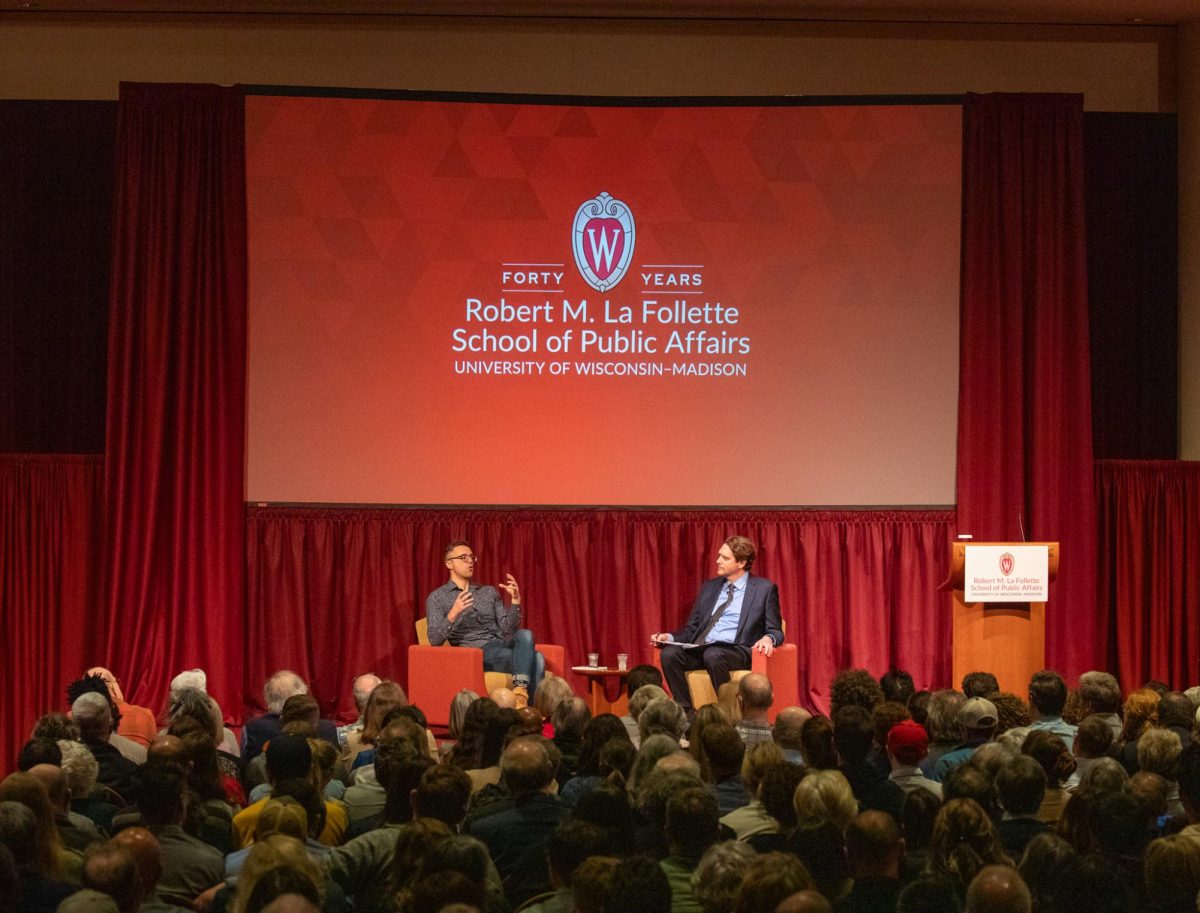Journalist Ezra Klein delivered a public talk to University of Wisconsin students and Madison community members Tuesday. Centered on and named after his 2020 bestselling book — “Why We’re Polarized” — the talk was part of the La Follette School of Public Affairs’ 40th anniversary celebration. This spring, Klein is serving as the school’s Public Affairs Journalist in Residence.
Klein is a columnist on The New York Times opinion page and host of the award-winning “Ezra Klein Show” podcast. He is the founder and former editor-at-large of Vox, and led The Washington Post’s Wonkblog.
Over an eight-year period, Klein wrote his book, which explores how political systems and thinking have changed in the U.S. These changes have led to increased polarization across the nation, but Klein emphasized polarization as a concept of organizing disagreement within a system.
“One of the frustrating things about the way we talk about polarization is we assume we know what we’re polarized over,” Klein said. “But even just in the time since I have published and written that book, that has changed.”
Klein pointed out a shift to the “locus of polarization” in the 21st century, saying polarization is now over democracy, elections and institutions — as opposed to varying opinions held among voters on issues of importance. An important aspect of increased polarization is the decreased “middle ground,” which in turn has made politics more competitive than ever, Klein said.
“As the choices in a system become more fundamental, more distant from each other, people become more distant from each other,” Klein said. “Swing voters become rarer and it’s not because we become less persuadable, it’s because there is less of a middle in politics.”
Political polarization in the U.S. is further fueled by social media and cable news that shows voters the most extreme views, Klein said. Because of this, Klein said breaking through what is shown in the media is critical for politicians hoping to cut across polarization.
In Wisconsin, Klein said Sen. Tammy Baldwin (D-WI) has found success in this, receiving votes from counties across the state that have strongly supported former President Donald Trump in the past. Klein said Baldwin’s focus on appealing to people unlike her has benefited her — especially as voters increasingly seek to elect candidates that see them as people, rather than simply constituents.
“Politics is not predetermined,” Klein said. “I focus in my book on the structural ways it is changing, but it is still full of people, it is still made up of decisions, and structure is not everything.”
Following his talk, interim director of the La Follette School Greg Nemet joined Klein in conversation about political polarization in the U.S. in the year of the 2024 presidential election year. Nemet emphasized the La Follette School’s nonpartisan approach to bringing students together to focus on civility and work across differences.
Klein highlighted the role educational polarization now plays in elections — a point of vulnerability for both the Democratic and Republican parties. A Pew Research Center study following the 2022 midterm elections showed college-educated voters have more firmly become a Democratic bloc. This influence of education on voting has added to political polarization overall, and is likely to be made apparent in the November presidential election, Klein said.
Klein urged voters to look beyond polarization, taking a critical eye to political arguments made by both Democrats and Republicans.
“One thing polarization allows you to do is think only about the problems on the other side, but there are always, always problems on your own side,” Klein said.














